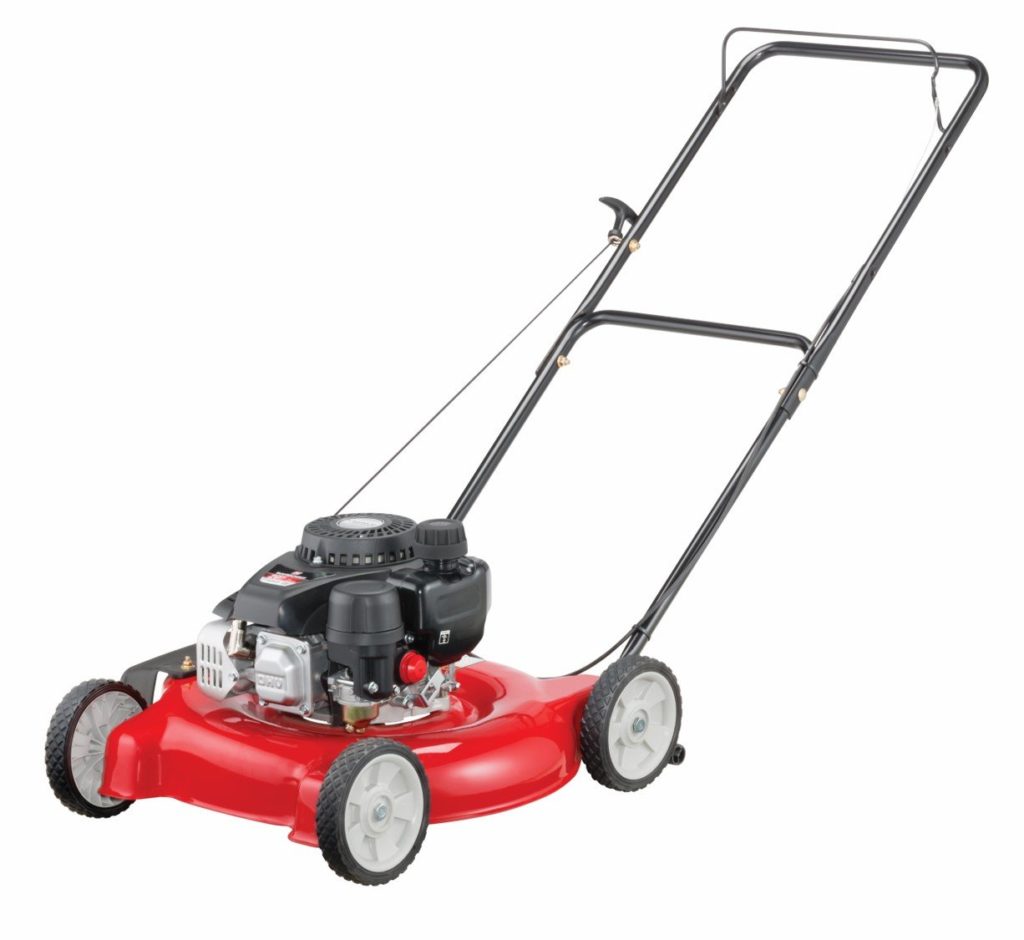When we talk about mowers, battery vs gas lawn mower has always been a popular question. Despite the growing popularity of battery-powered lawn mowers, gas lawn mowers still have a significant power superiority. Whereas battery-powered mowers favor fluctuations in temperature, smaller grasses, and dried grass, gas mowers can cut the grass at any hour of the day and in fewer circumstances. While you’re settling in for kickoff in the AC, enjoy a toast to your neighbor who was using his rechargeable battery mower at midday.
Gas lawn mowers last longer than most battery-powered lawn mowers, especially in difficult mowing situations. Rather than waiting 45 minutes to more than 3 hours for a battery to recharge, if you run out of energy, you may just stroll back to the pits or camper for a reload. Under the worst scenario, you ride to the petrol station for ten minutes.
Protracted endurance is another benefit. Power maintenance is required every 3 to 5 years for wireless mowers, and many will not last longer than 5 years due to their more complicated circuitry. An inexpensive gas lawn mower can last five years with the low hassle, but a quality one can last 10 years which is a long time with adequate treatment.
The cost is a major concern. A gas-powered mower costs less than $200, and a nice household one propelled by a Turbo engine costs roughly $400. You can invest several more on a battery mower with equivalent power, capabilities, and endurance.
Let’s not forget about quality. If you require repair or replacement, a combustion engine technician is usually only a 10-minute distance away in most places. Battery-powered property maintenance gear has fewer service centers, so you may have to wait weeks or even months for your lawnmower to be repaired.

When should you buy a battery lawn mower?
Noise, pollution, and efficiency are the 3 primary causes to choose a battery-powered lawn mower over a gas lawn mower. Battery-powered lawn mowers are undeniably lighter than their gas-powered rivals when we talk about battery vs gas lawnmower. There is a tremendous change in terms of levels of noise!
One problem that isn’t as prominent in the noise debate is security. While professional teams are likely to be more concerned, even householders can benefit from levels of noise modest enough just to hear what’s going on all around them. Increasing your spatial awareness is a positive idea, whether it’s a vehicle or bicycle on the road as you cut the front lawn or your kid rushing out into the yard.
When do people prefer a battery lawn mower over a gas lawn mower?
Another knock-on battery power is emitters. There are no immediate discharges to speak of. Some will most probably come from anywhere you receive your energy to recharge batteries via indirect means. It is, however, quite modest in comparison even to the most environmentally efficient gas mower.
There’s no doubt that a battery-powered lawn mower is more convenient. Simply take your fully charged battery, insert them, and mow. There’s no lubricant to combine with the gas, no need to bother about energy stabilizer, no clogging, no crankshaft troubles, no pull commencing, and no powder coating. On the initial and end days of your mowing season, it’s just quicker to utilize. On the initial and end days of your mowing season, it’s just quicker to utilize. We’ve outlined the pros and cons of gas vs. battery-powered lawnmowers, but each scenario is unique, and the final decision is yours to make. Some of the people in offices use battery mowers while others use gas mowers.
When is it ideal to use gas lawn mowers?
Whenever you are confused about deciding on battery vs gas lawn mower, it is best to consider a few critical factors. If you have a huge lawn (over 14,000 sq ft) and would like to mow it all at once, a gas mower can do it (as long as it has enough fuel). You won’t run short on energy with a cordless electric mower, but the size of the electric cord (50 to 100 feet) limits you, so electrical mowers are ideal for small yards under 1,500 sq ft. A battery-powered mower, that can run for 25 to 40 minutes each recharge based on the lawn level and density of the grass, is suitable for small to moderate yards of up to 14,000 sq ft. Acquiring and charging a spare battery, on the other hand, might increase your cutting time.

Which lawnmower makes the most noise?
When you start up your old gas-powered mower, it makes a noise of roughly 95 DB, which is equivalent to the noise of a motorbike. The noise production of newer gasoline-powered versions is improving. Even yet, both cordless and battery-operated electrical mowers are substantially quieter, generating around 65 and 75 DB, which is comparable to the noise of a laundry system running. If you’re concerned about excessive noise, either sort of battery mower will suffice. While deciding on battery vs gas lawn mower, you should consider this, in case you are noise conscious or have a peaceful neighborhood.
Gas mowers release hydrocarbon pollutants into the atmosphere because they’re driven by carbon fuels, so if lowering your environmental impact is essential to you, choose a tethered electrical or rechargeable battery electric mower. Gas mowers also necessitate hazardous fuel containment. Both types of electric lawnmower produce no fumes, however, cordless mowers’ battery packs include lithium, which has been reported to damage water sources during extraction. If going green is a key priority for you, a tethered electric mower will have a low environmental impact.
Gas mower owners should also dump the gasoline from the canister at the completion of the mowing period, as the ethanol in the gas can segregate from the other parts during the winters, leading the gasoline to deteriorate and making it difficult to restart the mower after this year.

